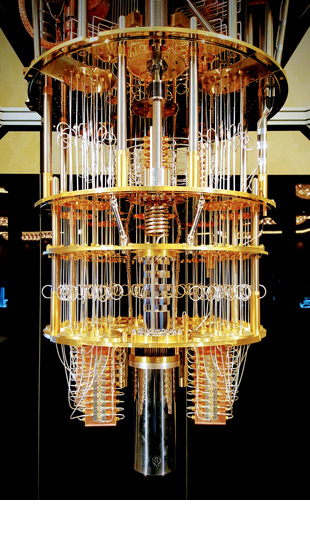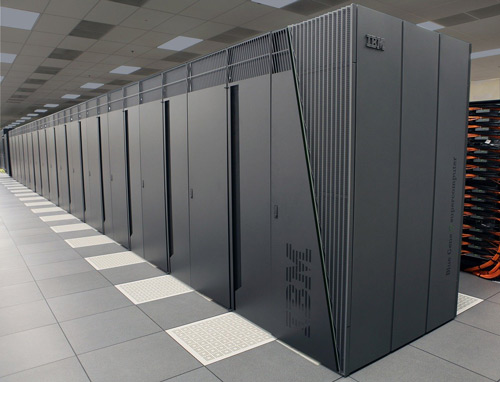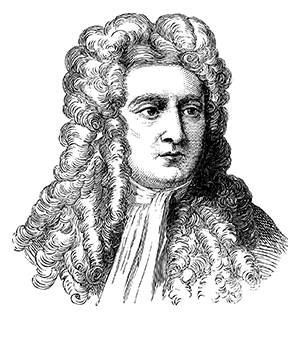


Google achieves milestone with quantum computing breakthrough
21/11/2019
What has Google achieved?

For the first time in history, a team of Google researchers claim to have achieved a major breakthrough in computing by demonstrating something known as ‘quantum supremacy’ after a 13 year journey. Don’t be surprised if you’ve not heard of this term before – quantum computing is still largely an experimental area of research, but it has the potential to utterly revolutionise the world as we know it, with some physicists comparing the impact of quantum computing to the discovery of electricity.
Google claims their quantum computer – ‘Sycamore’ – has achieved quantum supremacy for the first time, which means it has completed a task that a classical computer either simply could not, or would take an impossibly long time to achieve. In fact, Sycamore took a mere 3 minutes and 20 seconds to complete a calculation that one of the most powerful super computers in the world would take over 10,000 years to solve (although IBM contest this).
Despite the excitement, the implications of this breakthrough will likely not have an effect on society for many years to come. Quantum computers are unlikely to even replace classical computers in the near future because they’re not capable of out-performing a classical computer in many of the day-to-day tasks it’s required to perform. As Google’s CEO, Sundar Pichai explains: “…we have a long way to go between today’s lab experiments and tomorrow’s practical applications; it will be many years before we can implement a broader set of real-world applications”. Perhaps the best way to think about the implications of this breakthrough might be to suggest that we are now one (very important) step closer to being able to use a new tool we've never had before, to solve previously unsolvable problems. Put simply, when we’re able to harness the power of quantum computers and put them to use in healthcare, security, transport and so on, it will almost certainly propel the human race into the next technological age.
What is Quantum Computing?
 A quantum computer is not simply a more powerful version of the kind of computers we see around us every day, such as our laptops and smart devices. These types of computers are known as ‘classical computers’ and the most powerful versions of classic computers are referred to as 'supercomputers', which are used for very complex tasks such as weather forecasting. Physicist Shohini Ghose offers an analogy to try to illustrate the paradigm shift separating quantum computing and classical computing by likening it to the difference between a light bulb and a candle: a light bulb is not an improved version of a candle even though they are both used to produce light – a light bulb is a fundamentally different technology altogether that can produce some similar benefits but in a completely different way.
A quantum computer is not simply a more powerful version of the kind of computers we see around us every day, such as our laptops and smart devices. These types of computers are known as ‘classical computers’ and the most powerful versions of classic computers are referred to as 'supercomputers', which are used for very complex tasks such as weather forecasting. Physicist Shohini Ghose offers an analogy to try to illustrate the paradigm shift separating quantum computing and classical computing by likening it to the difference between a light bulb and a candle: a light bulb is not an improved version of a candle even though they are both used to produce light – a light bulb is a fundamentally different technology altogether that can produce some similar benefits but in a completely different way.
At a basic level, classical computing is an approach that relies on information being stored in ‘bits’ in a binary fashion. A bit can be either on or off (0 or 1). This is representative of what classical Newtonian physics taught us about the way the universe worked. A quantum computer however, relies on a non-binary approach where the identity of a quantum bit (known as a qubit) can be both 0 and 1 at the same time. This is known as 'superposition' and it means that the possible combinations of states grow exponentially with the more qubits you add into the equation. This allows a quantum computer to simultaneously explore multiple solutions to a problem instead of processing things more systematically like a classical computer might.
 In classical physics (and to an extent in classical computing), the universe is presented as logical, measurable and predictable. But the study of quantum physics has shown us that the universe is in fact formed by a (seemingly) invisible quantum realm that is so hard to detect and measure that we can only talk about it in terms of probabilities. Matter appears to be inextricably linked to other matter millions of light years away, and we to-date we have no way to explain this phenomenon. As the Nobel laureate Richard Feynman once said: “If you think you understand quantum mechanics, you don't understand quantum mechanics.” In fact, physicists are led to believe that the mechanics behind the way the universe works are largely random, unpredictable and out of reach to us (which is known as the measurement problem”). And here we come to what is so exciting about quantum computing – it offers us the ability to go far beyond simple binary states and into the unknown. Again, to quote Pichai:
In classical physics (and to an extent in classical computing), the universe is presented as logical, measurable and predictable. But the study of quantum physics has shown us that the universe is in fact formed by a (seemingly) invisible quantum realm that is so hard to detect and measure that we can only talk about it in terms of probabilities. Matter appears to be inextricably linked to other matter millions of light years away, and we to-date we have no way to explain this phenomenon. As the Nobel laureate Richard Feynman once said: “If you think you understand quantum mechanics, you don't understand quantum mechanics.” In fact, physicists are led to believe that the mechanics behind the way the universe works are largely random, unpredictable and out of reach to us (which is known as the measurement problem”). And here we come to what is so exciting about quantum computing – it offers us the ability to go far beyond simple binary states and into the unknown. Again, to quote Pichai:
"In many ways quantum brings computing full circle, giving us another way to speak the language of the universe and understand the world and humanity not just in 1s and 0s but in all of its states: beautiful, complex, and with limitless possibility"
